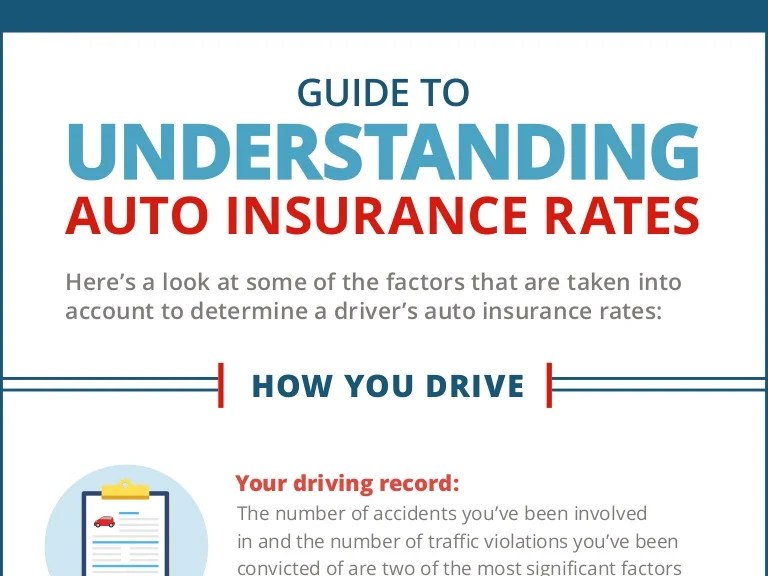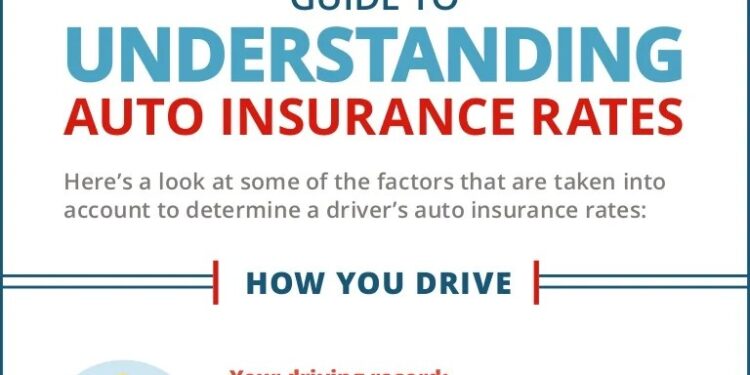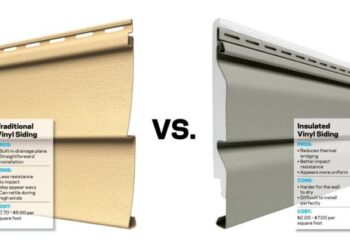Embark on a journey into the world of auto insurance quotations with our comprehensive guide. From unraveling the intricacies of insurance quotes to decoding the factors that influence premiums, this guide is your go-to resource for navigating the complex landscape of auto insurance.
 Auto insurance quotations are estimates provided by insurance companies that Artikel the cost of coverage for a specific vehicle based on various factors.
Understanding auto insurance quotes is essential as it allows individuals to make informed decisions about their coverage options and ensure they are getting the best value for their money.
Auto insurance quotations are estimates provided by insurance companies that Artikel the cost of coverage for a specific vehicle based on various factors.
Understanding auto insurance quotes is essential as it allows individuals to make informed decisions about their coverage options and ensure they are getting the best value for their money.
 When it comes to understanding auto insurance quotations, dealing with insurance agents plays a crucial role in getting the best deal tailored to your needs. Insurance agents are there to guide you through the complex world of insurance and help you navigate through the various options available to you.
Here are some tips on how to effectively communicate with insurance agents to get the best quotation:
When it comes to understanding auto insurance quotations, dealing with insurance agents plays a crucial role in getting the best deal tailored to your needs. Insurance agents are there to guide you through the complex world of insurance and help you navigate through the various options available to you.
Here are some tips on how to effectively communicate with insurance agents to get the best quotation:
Introduction to Auto Insurance Quotations
 Auto insurance quotations are estimates provided by insurance companies that Artikel the cost of coverage for a specific vehicle based on various factors.
Understanding auto insurance quotes is essential as it allows individuals to make informed decisions about their coverage options and ensure they are getting the best value for their money.
Auto insurance quotations are estimates provided by insurance companies that Artikel the cost of coverage for a specific vehicle based on various factors.
Understanding auto insurance quotes is essential as it allows individuals to make informed decisions about their coverage options and ensure they are getting the best value for their money.
Common Elements Included in an Auto Insurance Quotation
- The premium: This is the amount you pay for the insurance coverage, typically broken down into monthly or annual payments.
- Deductible: The deductible is the amount you are responsible for paying out of pocket before the insurance coverage kicks in.
- Coverage limits: This specifies the maximum amount the insurance company will pay for covered losses.
- Type of coverage: Auto insurance quotes will detail the type of coverage included, such as liability, collision, comprehensive, etc.
- Discounts: Insurance companies may offer various discounts that can help reduce the overall cost of the policy.
Factors Influencing Auto Insurance Quotes
When it comes to determining auto insurance quotes, several factors come into play that can significantly impact the cost of coverage. Understanding these factors is crucial for individuals looking to secure the best insurance rates possible.Age
Age is a key factor that insurance companies consider when calculating auto insurance quotes. Younger drivers, especially those under the age of 25, are often charged higher premiums due to their lack of driving experience and higher likelihood of being involved in accidents. On the other hand, older drivers, typically over the age of 65, may also face higher rates as they may have slower reaction times and more health-related issues that could impact their driving.Driving Record
A driver's history on the road plays a significant role in determining their insurance premiums. Those with a clean driving record, free of accidents or traffic violations, are likely to receive lower insurance quotes as they are considered lower-risk drivers. On the other hand, individuals with a history of accidents, speeding tickets, or DUIs can expect to pay higher premiums due to the increased risk they pose to insurance companies.Location
Where you live can also impact your auto insurance quotes. Urban areas with higher rates of traffic accidents and vehicle thefts typically result in higher insurance premiums compared to rural areas. Additionally, factors such as weather conditions, frequency of claims, and local laws and regulations can all influence the cost of insurance in a particular location.Type of Vehicle
The type of vehicle you drive can also affect your insurance rates. Cars that are expensive to repair or replace, have a high theft rate, or are known for being involved in accidents may result in higher insurance premiums. On the other hand, vehicles equipped with safety features, such as airbags and anti-theft devices, may qualify for discounts on insurance rates.Types of Auto Insurance Coverage
When it comes to auto insurance, there are several types of coverage you can choose from to protect yourself and your vehicle in different situations.Liability Coverage
Liability coverage is designed to protect you if you are at fault in an accident that causes bodily injury or property damage to others. This type of coverage is typically required by law and helps cover the other party's medical bills and repairs to their vehicle.Collision Coverage
Collision coverage helps pay for repairs to your own vehicle if you are involved in an accident, regardless of who is at fault. This coverage is beneficial in scenarios where you collide with another vehicle or object, such as a tree or pole.Comprehensive Coverage
Comprehensive coverage protects your vehicle from damages not caused by a collision, such as theft, vandalism, fire, or natural disasters. This coverage is useful in situations where your car is stolen or damaged by a hailstorm.Uninsured Motorist Coverage
Uninsured motorist coverage steps in to cover your medical bills and vehicle repairs if you are involved in an accident with a driver who does not have insurance. This coverage is essential in scenarios where the at-fault driver is uninsured or underinsured.Understanding Auto Insurance Premiums
Auto insurance premiums are the amount of money an individual pays to an insurance company for coverage. These premiums are calculated based on various factors such as the driver's age, driving record, type of vehicle, and location. Insurance companies use these factors to determine the level of risk a driver poses and adjust the premiums accordingly.Factors Influencing Auto Insurance Premiums
- Driving Record: A clean driving record with no accidents or traffic violations typically results in lower premiums.
- Age and Gender: Younger drivers and male drivers tend to have higher premiums due to statistical data showing they are more prone to accidents.
- Vehicle Type: The make and model of the vehicle can affect premiums, with expensive or high-performance cars costing more to insure.
- Location: Urban areas with higher rates of accidents and theft may lead to higher premiums.
Strategies to Lower Insurance Premiums
- Bundle Policies: Combining auto insurance with other policies like home insurance can lead to discounts.
- Drive Safely: Maintaining a clean driving record by obeying traffic laws and avoiding accidents can help reduce premiums.
- Increase Deductibles: Opting for a higher deductible can lower premiums, but it means paying more out of pocket in the event of a claim.
- Take Defensive Driving Courses: Completing a defensive driving course can sometimes result in lower premiums.
Comparison of Premium Costs for Different Coverage Options
- Liability Coverage: This type of coverage is usually the cheapest as it only covers damage you cause to others. Premiums vary based on coverage limits.
- Collision Coverage: This coverage pays for damage to your own vehicle in the event of an accident. Premiums are higher compared to liability coverage.
- Comprehensive Coverage: This coverage protects your vehicle from non-collision incidents like theft or natural disasters. Premiums can be higher but provide more extensive coverage.
Tips for Comparing Auto Insurance Quotations
When comparing auto insurance quotations, it's essential to look beyond just the price. Here are some tips to help you effectively compare quotes and make an informed decision.Step-by-Step Guide for Comparing Quotes
- Start by gathering quotes from different insurance providers. This can be done by visiting their websites or contacting them directly.
- Ensure the coverage limits and deductibles are consistent across all quotes for an accurate comparison.
- Review the types of coverage included in each quote, such as liability, collision, comprehensive, and uninsured/underinsured motorist coverage.
- Consider any additional benefits or discounts offered by each insurance provider, such as multi-policy discounts or safe driver rewards.
- Look at the reputation and customer reviews of each insurance company to gauge their customer service and claims handling.
- Compare the overall value of each quote, taking into account the coverage offered, customer service, and price.
What to Look for When Comparing Quotations
- Compare coverage limits and deductibles to ensure you're getting similar levels of protection.
- Consider the types of coverage included and whether they meet your needs and budget.
- Look for any exclusions or limitations in the policy that may affect your coverage in certain situations.
- Check for any additional benefits or discounts that could make one quote more cost-effective than another.
- Consider the financial stability and reputation of the insurance company to ensure they can fulfill their obligations in case of a claim.
The Importance of Not Just Focusing on Price
- While price is an important factor, it shouldn't be the only consideration when comparing auto insurance quotes.
- Choosing the cheapest quote may result in inadequate coverage or poor customer service.
- Consider the overall value and quality of the coverage offered, as well as the reputation of the insurance provider.
- Remember that the goal is to find the best coverage at a competitive price, not just the lowest price.
Importance of Reading the Fine Print
Reading the fine print of an auto insurance quotation is absolutely crucial for policyholders to fully understand the terms and conditions of their coverage. This detailed section contains important information that can significantly impact the policyholder's rights and responsibilities in the event of a claim or dispute.Common Terms and Conditions in Auto Insurance Policies
- Policy Coverage Limits: These specify the maximum amount the insurance company will pay for covered losses.
- Deductibles: The amount the policyholder must pay out of pocket before the insurance coverage kicks in.
- Exclusions: Items or situations not covered by the insurance policy, such as intentional acts or certain types of damage.
- Claims Process: Details on how to file a claim, timelines for reporting incidents, and documentation requirements.
Examples of Clauses to Pay Close Attention to
-
Subrogation Clause: This clause allows the insurance company to seek reimbursement from a third party if they are responsible for the damages. It's important to understand how this may affect your rights in a claim situation.
-
Grace Period: Some policies may have a grace period for premium payments, but it's essential to know the exact terms to avoid a lapse in coverage.
-
Policy Renewal Terms: Understanding how and when your policy will be renewed can help prevent gaps in coverage and unexpected changes in premiums.
Dealing with Insurance Agents
 When it comes to understanding auto insurance quotations, dealing with insurance agents plays a crucial role in getting the best deal tailored to your needs. Insurance agents are there to guide you through the complex world of insurance and help you navigate through the various options available to you.
Here are some tips on how to effectively communicate with insurance agents to get the best quotation:
When it comes to understanding auto insurance quotations, dealing with insurance agents plays a crucial role in getting the best deal tailored to your needs. Insurance agents are there to guide you through the complex world of insurance and help you navigate through the various options available to you.
Here are some tips on how to effectively communicate with insurance agents to get the best quotation:
Role of Insurance Agents in Explaining Auto Insurance Quotes
Insurance agents are trained professionals who can help you understand the intricacies of auto insurance quotes. They are there to explain the terms, coverage options, and pricing details in a way that is easy to comprehend. Here are some key points to consider when dealing with insurance agents:- Ask about the coverage limits and deductibles to ensure you are adequately protected in case of an accident.
- Discuss any discounts that may be available to you based on your driving history or other factors.
- Inquire about any additional coverage options that may be beneficial for your specific needs, such as roadside assistance or rental car reimbursement.
Questions to Ask Insurance Agents When Discussing Quotations
When speaking with insurance agents about auto insurance quotations, it's important to ask specific questions to ensure you have a clear understanding of what you are getting. Here are some examples of questions you can ask:- Can you explain the differences between the coverage options available to me?
- What factors are taken into account when calculating my premium?
- Are there any discounts I may qualify for?
- What is the claims process like in case of an accident?







